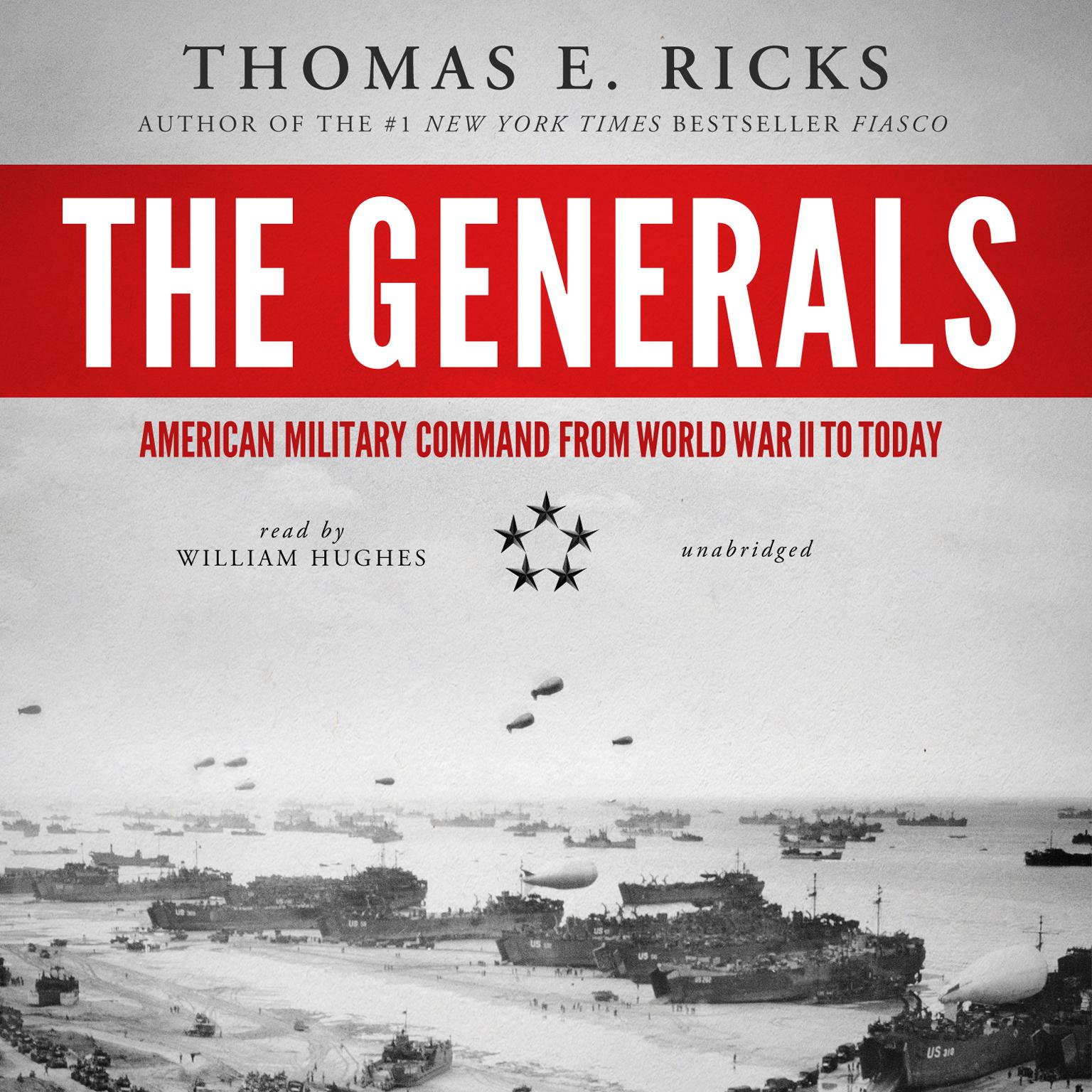Publisher Description
From the #1 New York Times bestselling author of Fiasco and The Gamble comes an epic history of the decline of American military leadership from World War II to Iraq.
History has been kinder to the American generals of World War II—Marshall, Eisenhower, Patton, and Bradley—than to the generals of the wars that followed. Is this merely nostalgia? In The Generals, Thomas E. Ricks answers the question definitively: No, it is not—in no small part because of a widening gulf between performance and accountability. During the Second World War, scores of American generals were relieved of command simply for not being good enough. Today as one American colonel said bitterly during the Iraq War, “As matters stand now, a private who loses a rifle suffers far greater consequences than a general who loses a war.”
In The Generals we meet great leaders and suspect ones, generals who rose to the occasion and those who failed themselves and their soldiers. Marshall and Eisenhower cast long shadows over this story, but no single figure is more inspiring than Marine General O. P. Smith, whose fighting retreat from the Chinese onslaught into Korea in the winter of 1950 snatched a kind of victory from the jaws of annihilation. But Smith’s courage and genius in the face of one of the grimmest scenarios the marines have ever faced only cast the shortcomings of the people who put him there in sharper relief.
If Korea showed the first signs of a culture that neither punished mediocrity nor particularly rewarded daring, the Vietnam War saw American military leadership bottom out. The My Lai massacre is held up as the emblematic event of this dark chapter of our history.
In the wake of Vietnam, a battle for the soul of the US Army was waged with impressive success. It became a transformed institution, reinvigorated from the bottom up. But if the body was highly toned, its head still suffered from familiar problems, resulting in leadership that, from the first Iraq War through to the present, wastactically savvy but strategically obtuse—one that would win battles but would end wars badly.
Thomas E. Ricks has made a close study of America’s military leaders for three decades, and in his hands this story resounds with larger meaning: the transmission of values, strategic thinking, the difference between an organization that learns and one that fails. Military history of the highest quality, The Generals is also essential reading for anyone with an interest in the difference between good leaders and bad ones.
Download and start listening now!
“This is a study of American generals since WWII by the national defense/security correspondent for the Washington Post. Ricks wrote two superb book on the Iraq War (Fiasco; The Gamble). I had expected that the book would be a series of profiles of some of the key individuals to have enjoyed senior command rank in the Army. It is much more than that. Ricks has written a thoughtful management study focused on the issues of how generals are held accountable for their performance – the extent to which they are relieved of command by their superiors. The standard here is the system established by General George Marshall immediately prior to the start of WWII, by which poor performing generals were frequently relieved of command and either reassigned to other duties or retired. Ricks links such a policy to the success of US forces in WWII and the stabilization of the US position in Korea under Ridgeway. In subsequent wars, especially Vietnam, generals were not frequently relieved, with the result that accountability within the Army suffered, as did relations between the Armed Forces and civilian control. He follows the analysis through to the Iraq Wars and the Afghan War up through the departure of General David Petraeus to the CIA.
Overall, this is an excellent look at the relationship between personnel policies, leadership development, organizational culture, and the strategic performance of an organization. Ricks also considers the role of more general personnel policies regarding length of tours, reassignment, unit rotations, and the like. He is especially strong at separating the issues of organization and culture from the issues of personality that can often dominate popular discussions of military leaders and their occasional failings. Ricks also emphasizes that removals need not be totally negative and should be tied to “second chances” where possible.
The author tries to do too much in spots and cover too much ground. The failures of strategy and doctrine in Vietnam, for example, go far beyond policies regarding the relief of senior officers and have been covered elsewhere. Similarly, the author’s treatment of the rebuilding of the Army after Vietnam is very enlightening but goes well beyond issues of generalship. It would also have been helpful to consider why the Marshall systems is not as feasible in a context of minor and more limited wars, which is the context most likely to be seen going forward. These are minor issues, considering the great strengths of the book, which is well written and well referenced.
I would highly recommend this book to anyone following current military and national security issues. Ricks is one of the very best writers on such topics (he also has a good blog). This book presents a striking example of his skills.”
—
Marks54 (4 out of 5 stars)











